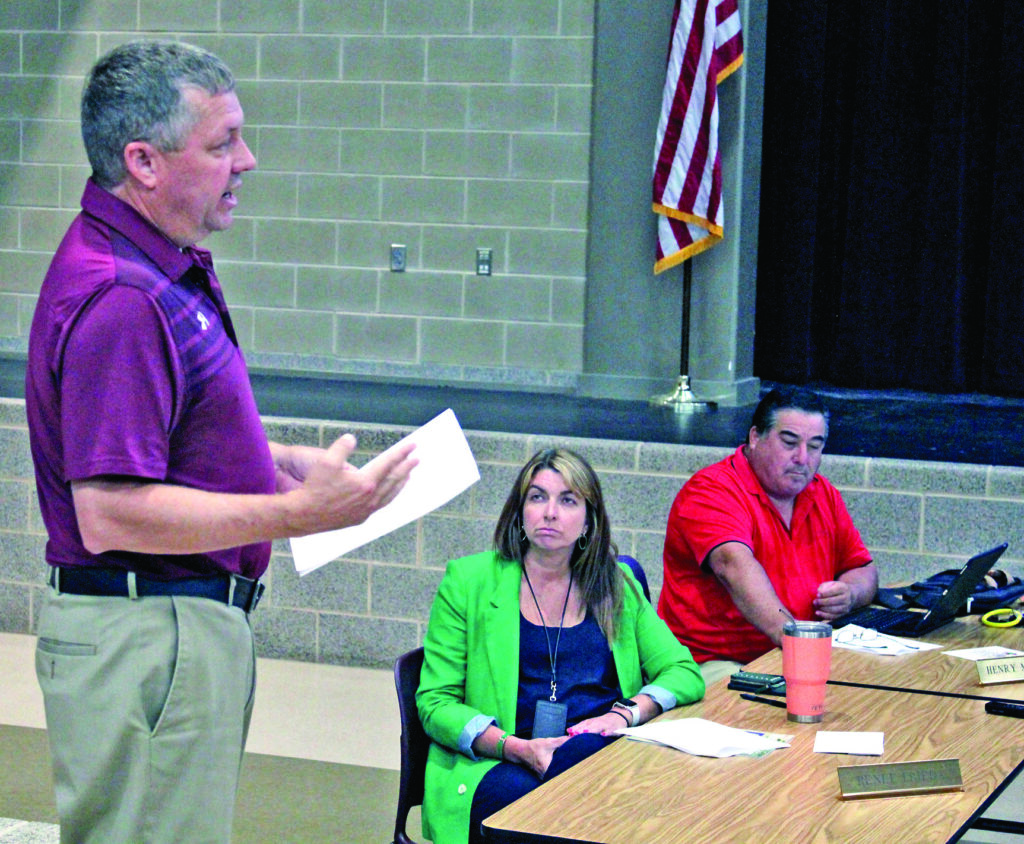
By Anton Riecher
Many of the new requirements for accelerated instruction approved by the Texas Legislature in 2021 caused less difficulty for the Devine ISD than other school districts, high school assistant principal Steve Anderson told the Devine school board May 16.
“House Bill 4545 caught everybody by surprise but it didn’t affect us as whole lot because we’ve done a lot of this anyway,” Anderson said.
The school board agenda included an annual public hearing on the high school’s accelerated instruction program.
HB 4545, effective as of June 2021, established new requirements for accelerated instruction for students who fail to pass the State of Texas Assessments of Academic Readiness (STAAR). Any student who chooses to retake a required course is entitled to accelerated instruction as required by the new legislation.
“They kind of made it mandatory to do some acceleration for the kiddos that didn’t pass the STAAR test,” Anderson said.
At Devine High School, students are eligible for dual credit programs in which an eligible high school student enrolls in college courses and receives credit from both the college and high school. Dual credit courses for both academic and technical courses may be taught on the high school campus by an approved instructor.
“There are eleventh and twelfth graders that get the 12 hours of English, six hours of U.S. history, then government and economics that adds up to 24 hours,” Anderson said.
The district also offers College Board Advance Placement Program (AP) examinations for topics such as biology, world history and others. One major advance for the local school district is Devine High School is now a testing center for academic, career and technical education courses.
“It used to be a big headache organizing a trip to take kids to the testing center,” Anderson said. “We can actually do that here now.”
However, changes forced by HB 4545 did impact the district negatively in one specialized subject – welding.
“We don’t have dual credit for welding anymore,” Anderson said. “The college board came out with a new rule or law that basically said that all ag teachers that taught welding couldn’t do it anymore unless they had a master’s degree.”
Otherwise, the district met most of the new requirements under HB 4545, he said.
“If you basically fail the STAAR EOC (end-of-course) test then that summer or next year you’ve got to get 30 hours of acceleration for mediation, basically,” Anderson said. “We’re kind of already doing that for the most part so it wasn’t hard for us to implement.”
For example, at high school ninth graders are tested in English, biology and algebra, he said. During sophomore year the student take English II and, during the junior year, U.S. history.
“So they’ve got five tests and they have to pass those to graduate for the most part,” Anderson said. “There are some exceptions but if they fail any of those classes they’ve got to get 30 hours of mediation, which was hard last year because HB 4545 caught everybody by surprise.”
Unfortunately, English tends to be the subjects students struggle with the most, both statewide and in Devine, he said. Developing a rotation of special classes and labs to prepare students for retesting in English and the other various subjects is difficult to manage.
New arrivals at high school also have their problems qualifying under HB 4545, Anderson said.
“In the eighth grade they take four STAAR tests – science, social studies, math and reading,” he said. “We had 60 kids that came to us that failed at least one of those subjects.”
Statewide, high schools also report a high number of STAAR failures for incoming students, due largely to COVID,” Anderson said.
“In Devine, we probably had 15 of those kids fail all the tests and maybe another 15 who only failed one,” he said. “We had to find a way to remediate those kids.”
The district created five STAAR labs depending mainly on computer programs with teachers monitoring their work, he said. Failure to pass any of the STAAR testing required 30 hours of accelerated remediation.
“Basically, to get 30 hours done it takes about nine weeks based on 45-minute class periods,” Anderson said. “The state made it difficult. If you fail four subjects you are going to be in a STAAR lab all year long.”
Options for summer school classes are also in the works, he said.